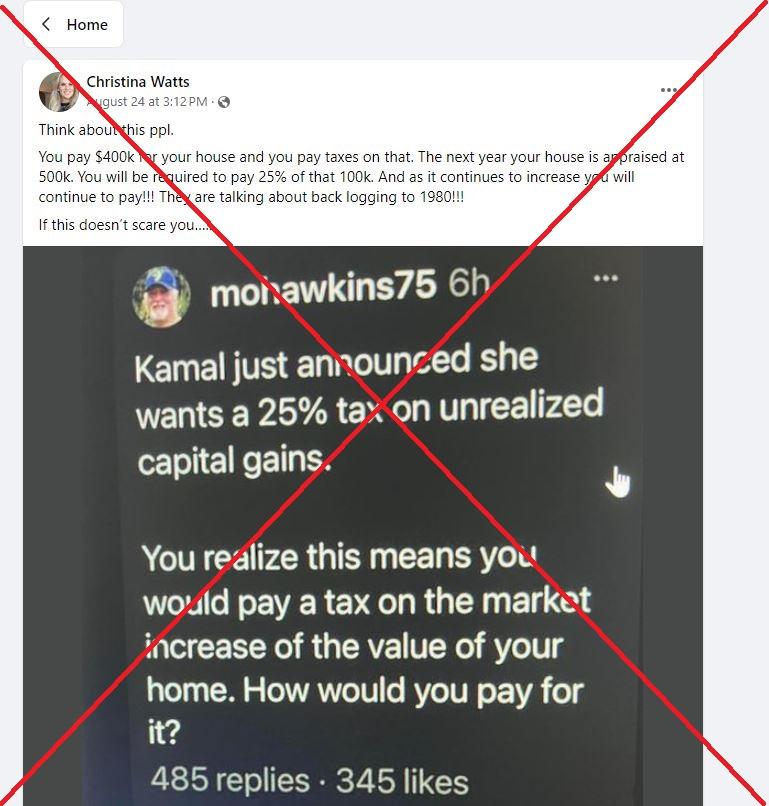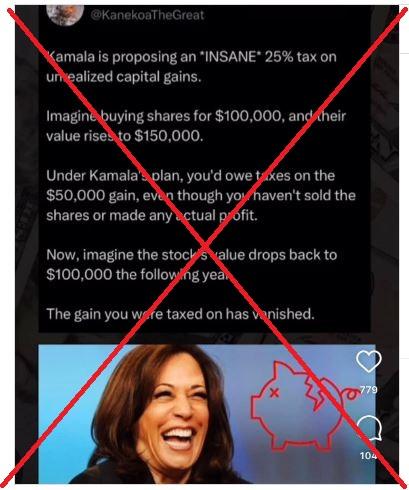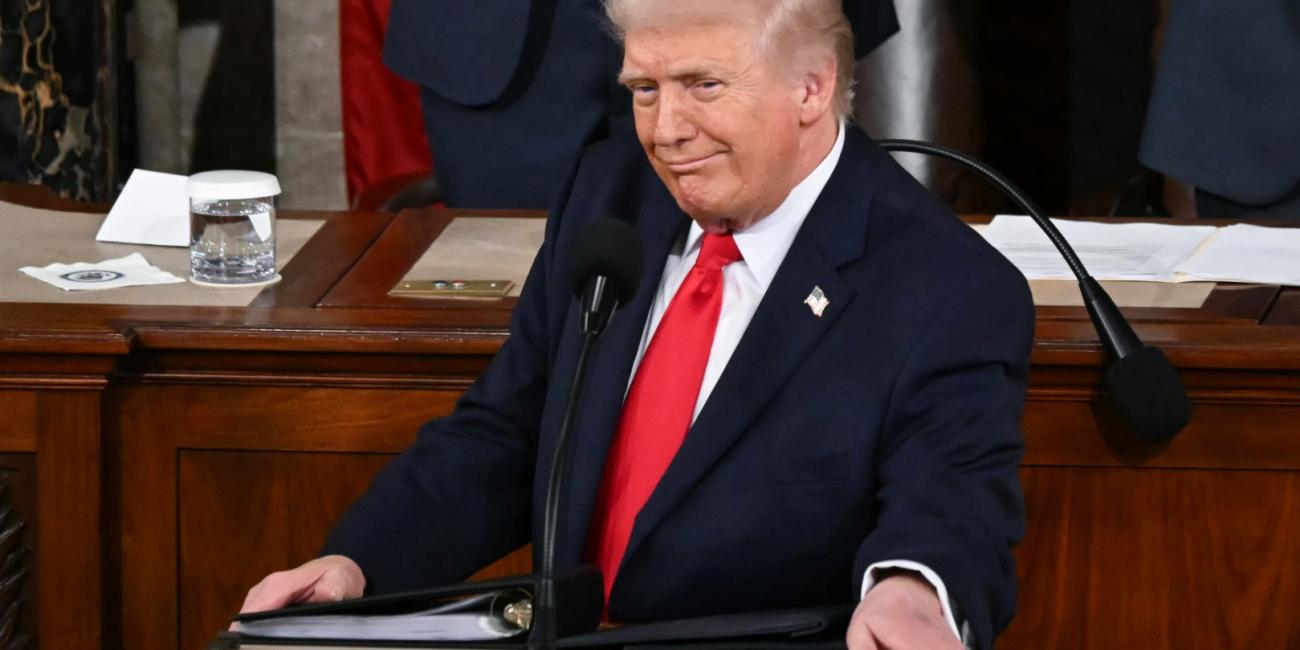
Posts misrepresent Harris tax plan on unrealized capital gains
"KH wants to impose a 25% tax on UNREALIZED gains. When your house value goes up she wants to tax it even if you're not selling it!" said an August 25 X post.
"Her unrealized TAX isn't only applicable to your home. It's applicable to any asset you own. Car. Guns. Furniture. Jewelry. Art. Pensions. Stocks," said a Facebook post with tens of thousands of interactions, circulating as Harris and Republican Donald Trump ramp up their White House campaigns.
Trump joined in the criticism, commenting that the plan "will soon be applied to small business owners and you will be forced to sell your restaurant immediately."
Former presidential candidate turned Trump surrogate Vivek Ramaswamy made similar remarks in a CNBC interview. "If you're a farmer or a small business owner, you will owe taxes with cash you literally do not have in your pocket to pay those taxes. That is a formula for a second Great Depression," he said.
Related claims shot across other platforms including YouTube, Instagram, Threads and TikTok.


Harris, who launched her presidential campaign after Joe Biden dropped out in July, had not released a detailed economic plan as of August 27. But she has largely endorsed Biden's economic agenda, which was also adopted by the Democratic National Convention.
The feature on unrealized gains comes from the March 2024 White House budget proposal that calls for higher taxes on the wealthiest taxpayers (archived here). This would break new ground by imposing a minimum 25 percent tax on the appreciated value of assets -- but only for taxpayers with a net worth of $100 million or more. The White House estimated this would affect "the wealthiest 0.01 percent" of taxpayers.
Claims that this would impact ordinary investors or homeowners are false.
The plan is detailed in a 256-page Treasury document (archived here) which explains on page 83 that it "would impose a minimum tax of 25 percent on total income, generally inclusive of unrealized capital gains, for all taxpayers with wealth (that is, the difference obtained by subtracting liabilities from assets) greater than $100 million."
An analysis of the Biden plan by the tax firm Proskauer Rose noted that the tax "phases in for taxpayers with wealth between $100 million and $200 million" in "tradable assets" without a precise definition (archived here).
Separately, the plan also would raise the top rate for capital gains to 44.6 percent, but only for individuals with incomes of $400,000 or more, as part of an effort to raise some $5 trillion in additional revenue over 10 years. The Democratic nominee has echoed Biden's pledge not to raise taxes on those earning less than $400,000 annually.
'Musks and Zuckerbergs'
"This is for the (Elon) Musks and (Mark) Zuckerbergs of the world, those who have founded their companies, and are now fabulously rich," said Steven Rosenthal, a senior fellow at the Urban-Brookings Tax Policy Center (archived here).
"It's not going hit the little guy, and they're not going after houses. They're going after mega-fortunes for founders of these dot-coms and other technology firms."
Rosenthal said the proposal faces considerable legal and constitutional challenges and that any plan would face a tough road in Congress. He noted that implementation could be complicated because "oftentimes it's hard to figure out what an asset is worth," whether it is private or publicly traded.
The business-friendly Tax Foundation, in a 2022 blog when the plan was first unveiled, said it "would take the tax code in the wrong direction by imposing a complicated tax on a narrow segment of high-earning households in a way that's never been tried, adding new compliance and administrative challenges for an already overburdened IRS" (archived here).
Others such as the left-leaning Institute on Taxation and Economic Policy said the plan would make the tax system fairer to the middle class by getting more revenue from the ultra-wealthy (archived here): "By not taxing unrealized capital gains, our tax code is more lenient on extremely wealthy people who are more likely to have this type of income than most of us who pay taxes on income from work."
Critics of the current tax system argue that wealthy households often hold assets to avoid capital gains taxes while borrowing against the value of their holdings without ever selling to trigger a tax.
The Harris campaign did not respond to an AFP query on the plan, but in an X post in response to Trump's remarks, said it "applies only to individuals with at least $100 million in wealth" (archived here).
AFP has fact-checked other false claims about the 2024 US presidential election.
Copyright © AFP 2017-2026. Any commercial use of this content requires a subscription. Click here to find out more.
Is there content that you would like AFP to fact-check? Get in touch.
Contact us




